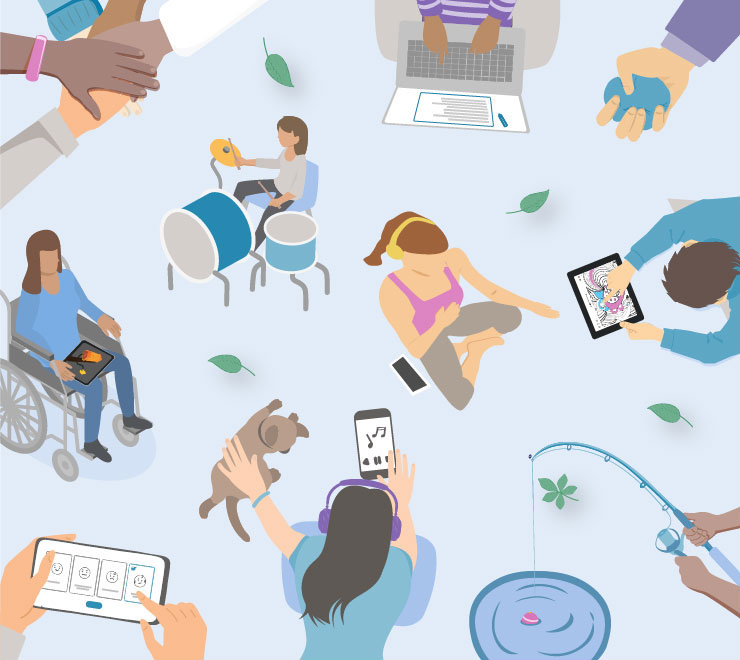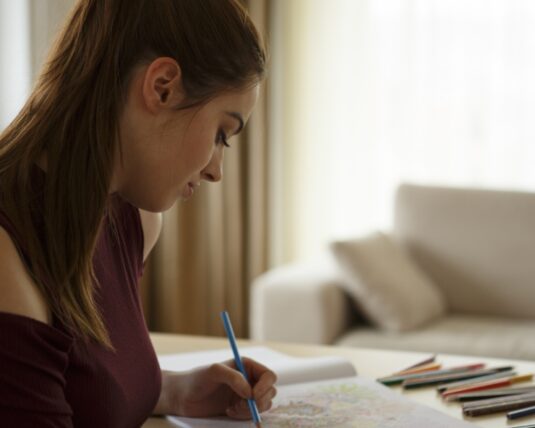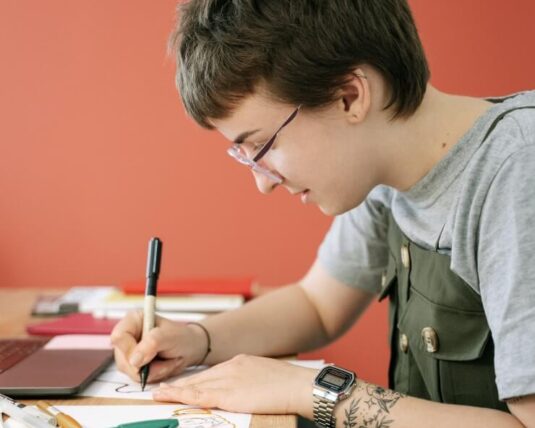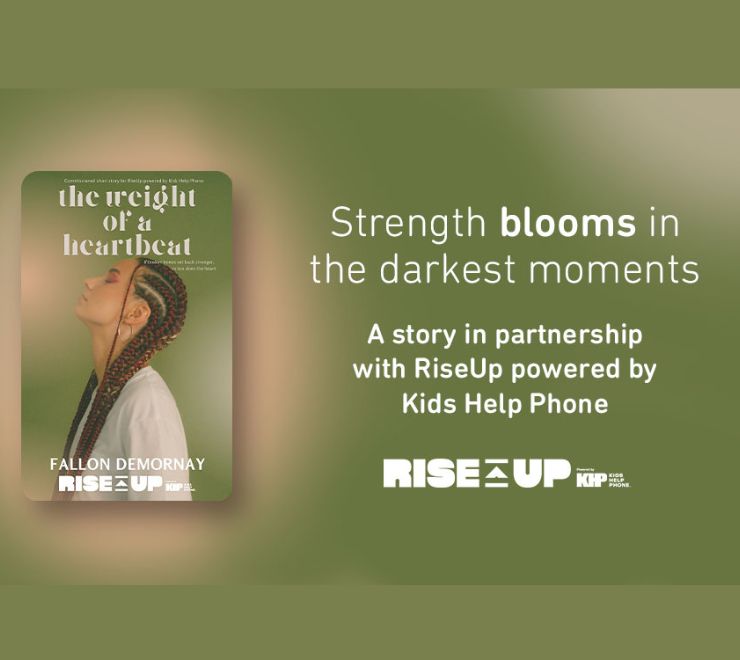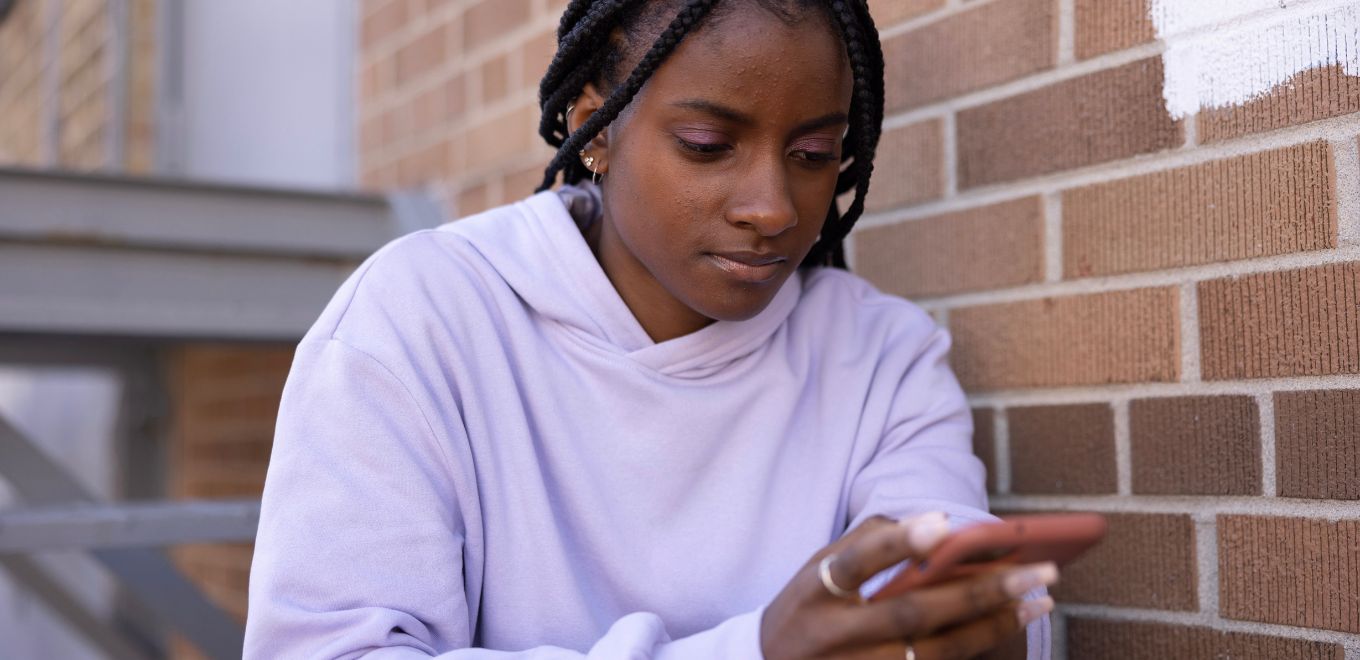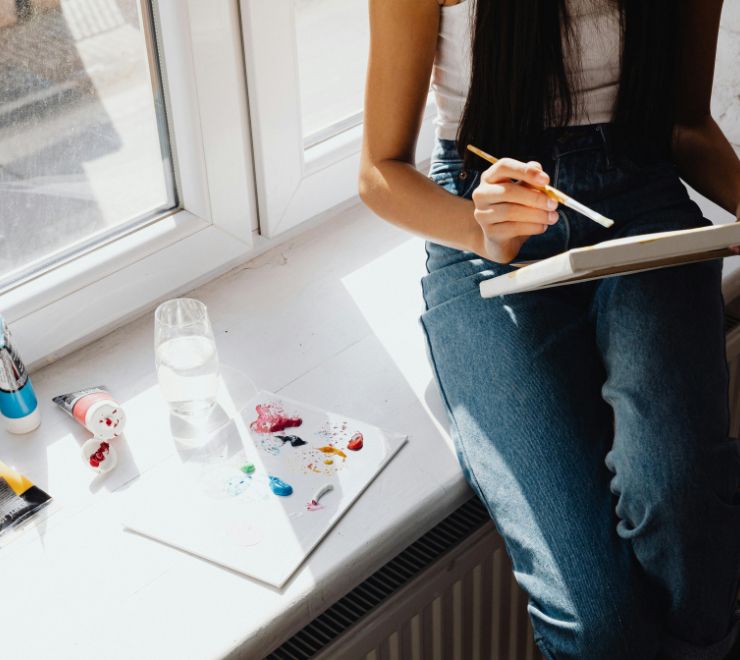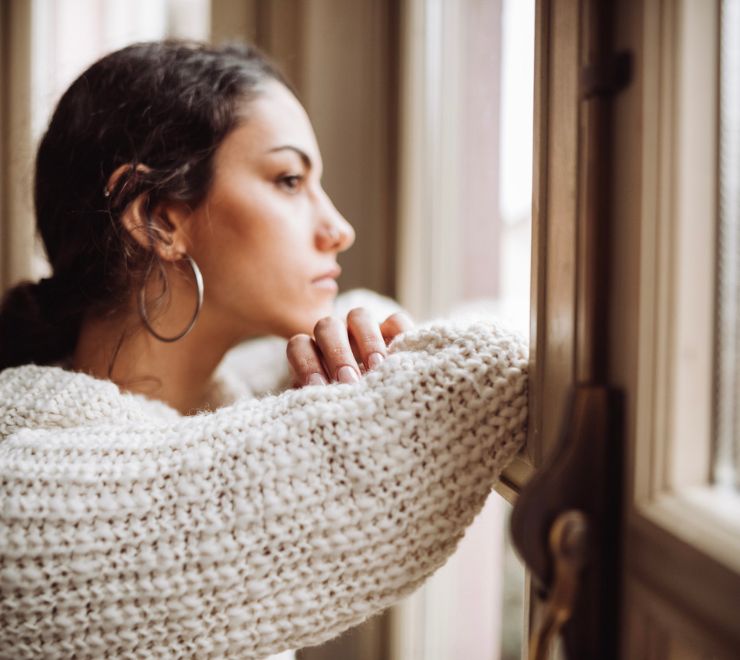Did you know that attention deficit hyperactivity disorder (ADHD) is one of the most common neurodevelopmental conditions among young people? Gymnast Simone Biles, singer-songwriter Scott Helman and YouTuber Jessica McCabe are all living with it and finding ways to thrive. If you’re reading this, it’s possible you have some questions about ADHD — what it is, what the experiences can be, ways to get support and more. You can keep reading for more information!
Important note: Kids Help Phone wants you to know that the terms used in this piece are just some of the ways to talk about ADHD. Some people may have different preferred language, ways to think about it and ideas for supporting it, and that’s OK! You can always use the words, resources and supports that work best for you.
What is ADHD?
ADHD is a neurodevelopmental condition (i.e. it affects the brain) that often shows up during childhood. It can impact things like a person’s ability to pay attention and think before acting. We don’t currently know exactly what causes ADHD, although research suggests it could be partly genetic. We do know that only a health-care professional (e.g. a doctor, psychologist, psychiatrist, pediatrician, neurologist, etc.) can formally diagnose it by doing a thorough assessment.
ADHD can be very different from person to person. Everyone has unique experiences. Young people diagnosed with ADHD think and feel the same way others do. The difference is, these thoughts and feelings can last longer, and be more intense. For example, everyone can get distracted some of the time. For those living with ADHD, they can get distracted a lot of the time.
What are some common experiences of ADHD?
People who have ADHD may have a wide range of experiences and characteristics. (That’s also why there are different types of ADHD, including what used to be called attention deficit disorder (ADD).) Keep in mind that ADHD may occur alongside other conditions like learning disabilities, giftedness, depression and anxiety. People with ADHD may experience negative reactions that affect their mental health and self-esteem, too. Symptoms may be noticeable for some when they’re younger, but people at any age can be diagnosed with ADHD. You may also notice that ADHD can have both upsides and downsides. Some people with ADHD are more likely to:
- be open to trying new things
- be impulsive
- have trouble concentrating
- be super focused on things they like
- struggle with relationships (e.g. making friends, understanding social interactions, talking “too much,” not knowing what to say or when to say it, etc.)
- have difficulty with self-control (e.g. having outbursts, having trouble calming down, etc.)
- be extremely active (e.g. fidgeting, running around, etc.) and have lots of energy
- have trouble sleeping
- struggle at school
- be good at multitasking
- be slow to react
- have trouble with memory (e.g. following instructions, sticking to goals, etc.)
- be sensitive to rejection or perceived rejection
- be creative / innovative
- experience strong feelings
- engage in higher risk behaviours
- and more
Sometimes, some of these things can be helpful, while other times, they can be more challenging. The good news? There are always things you can do to take care of yourself and put into place to help you or those who support you reach your goals.
Do you feel like you want to have a confidential conversation with a real person right now?
Check out our e-mental health services for support.
Are there any supports available for people with ADHD?
Yes! There are many supports available to people with ADHD. Young people often work with their parent / caregiver(s), health-care professionals, educators and others to find options that work best for them as needed / wanted. These can include things like:
- individual education plans (IEPs) at school
- community programs and social supports
- therapy, counselling and / or medication
- building self-esteem and self-awareness
- healthy exercise and nutrition habits
- spending time outside
- trying different strategies or tools (e.g. having routines, making lists, setting timers, taking breaks, doodling, using fidget devices, etc.)
- discovering and using personal strengths and interests
- practising positive self-talk, self-acceptance and self-care
- and more
Finding support is about taking care of yourself and discovering what works best for you in any situation, just like anyone else.
Where can I get more information?
There’s so much more to know about ADHD! You can visit the following resources to learn more at any time:
- Sophia’s drawings reflect her feelings during pandemic (CBC Kids News)
Related self-guided tools from Kids Help Phone
If you’ve been diagnosed with ADHD, it’s important to remember you’re not alone. If you have questions about your mental health and well-being and / or how ADHD is affecting your life, you can reach out to someone you trust. You can also find ways to get in touch with Kids Help Phone for support 24/7.


